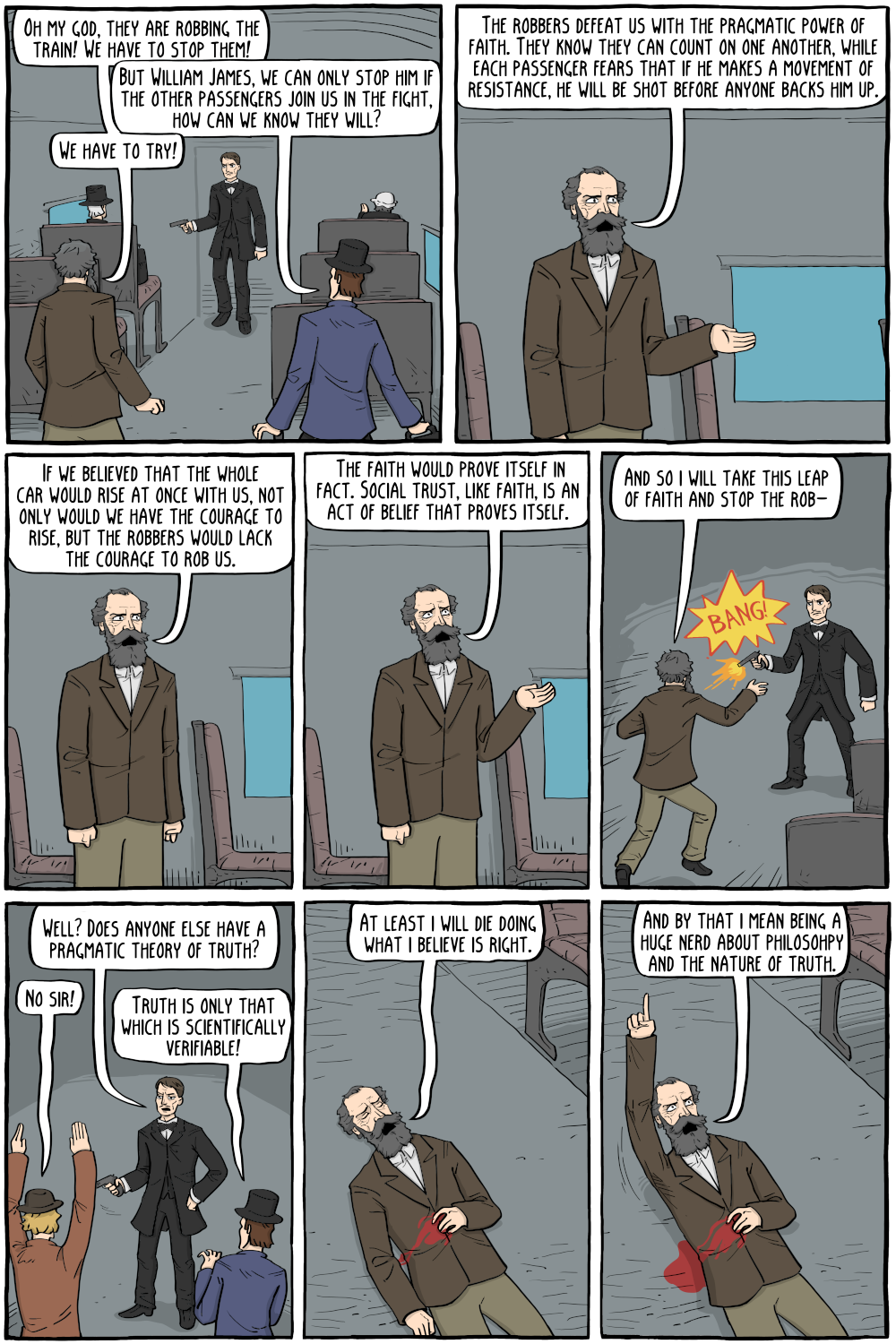
William James, with his pragmatic theory of truth, criticized the dominant scientific view of his time, which held that we should only believe things if we have adequate empirical evidence for them. He argued that many important ways we use belief in society follow a different pattern — in fact, belief can often come first and create the fact afterward.
He gave various examples. One was of a man who believes a woman should love him, and pursues her until she does. Another is from sports, where top athletes maintain a seemingly irrational belief that they can defeat any opponent. For instance, Buster Douglas never could have beaten Mike Tyson if he hadn’t first believed he could. In such cases, the belief created the fact.
His most famous example is that of train robbers, who are able to rob hundreds of passengers despite being only a few men. James explained that the robbers succeed because they can count on one another, whereas the passengers lack belief that, if they resist, others will rise up with them. If the passengers all believed in each other enough to rise together, that shared trust would give them the courage to act — and simultaneously destroy the robbers’ belief that they could succeed.
None of these examples fit the standard account of belief described by philosophers, yet huge portions of society depend on precisely this kind of belief and social trust.
Permanent Link to this Comic: https://existentialcomics.com/comic/616
Support the comic on Patreon!










